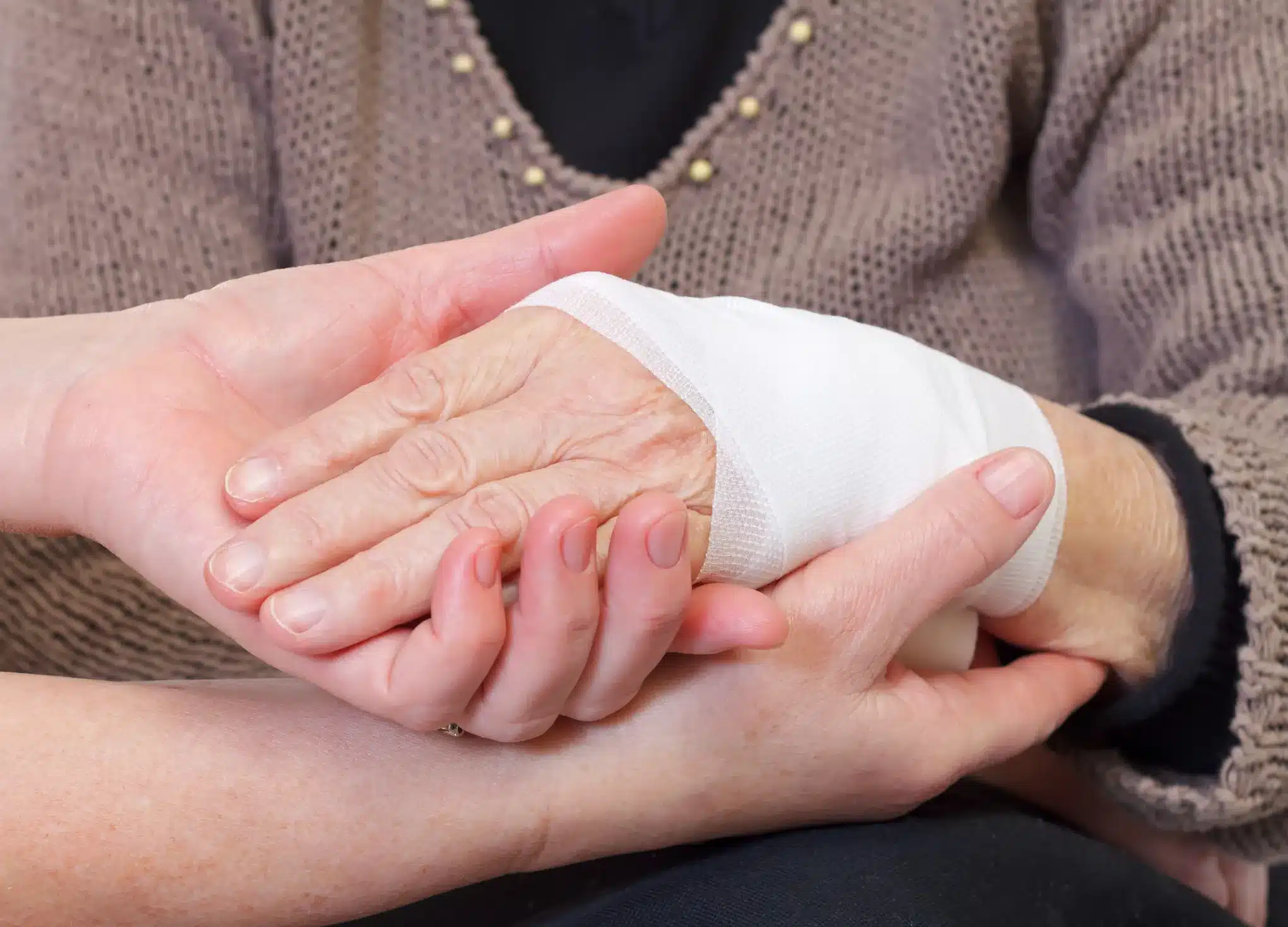Understanding the signs and symptoms of nursing home abuse is essential for family members, caregivers, and even residents themselves, as it enables them to recognize potential abuse and take necessary actions to protect the well-being of the elderly. From physical indicators such as unexplained injuries to emotional and behavioral changes that hint at neglect or psychological harm, below we provide an insightful overview of potential indicators of neglect or abuse.
If you suspect your loved one is suffering abuse or neglect at their nursing home or assisted living facility, call the skilled Greenville nursing home abuse attorneys at Smith Jordan Law.
Common signs and symptoms to watch for
If you suspect your loved one is being neglected, start by looking for physical signs, such as rashes, bedsores, random bruises, and unexplained broken bones. If left untreated, this neglect can lead to skin or soft-tissue infections. Even if your loved one seems healthy, they constantly have bad hygiene, it may indicate neglect.
Signs that the patient is not being bathed properly, soiled diapers, or they look like they are not getting proper nutrition. Oftentimes nursing home patients become dehydrated or end up getting Urinary Tract Infections (UTIs) that cause them to be transferred to the hospital. There are times when a patient with a UTI can develop a systemic infection that is referred to as “sepsis.” Another common problem with nursing home patients is bed sores. These occur on the patient’s sacrum or their heels and they can develop rather quickly. Those on the sacrum or buttocks can become infected with feces resulting in a serious infection or even death.
Are most of these physical injuries, or is it neglect, or a combination?
It is physical neglect. It may be that a patient has signs of something going on and the nursing staff is just slow to alert the physicians that there is a problem. The doctors don’t make rounds on these patients like in a hospital and they rely heavily on the nursing staff to monitor the patient. That’s why it’s called “skilled nursing” care. But, if the nurses don’t inform the doctors that is where the problem can get out of hand. A bladder infection can turn into sepsis infecting the entire body in days if not properly diagnosed and treated with antibiotics.
Can you provide an example of this?
A good example would be a case where there was a UTI and the patient had a fever for several days and the nurses did not notify the doctor and the person ended up in the hospital with sepsis and died. And that’s just from a bladder infection – bedsores are also a huge problem.
The nursing staff is supposed to rotate the patients on a certain schedule, especially those who are confined to bed and unable to get up on their own. They may report that they moved the patient and maybe not have done it, or they may not have properly checked the bedsores and applied the medicine, gauze, or dressing. If a person is incontinent and the bedsore is near their sacrum, feces can get into the wound and it can result in an infection.






